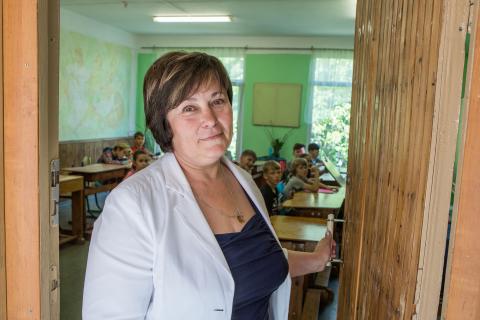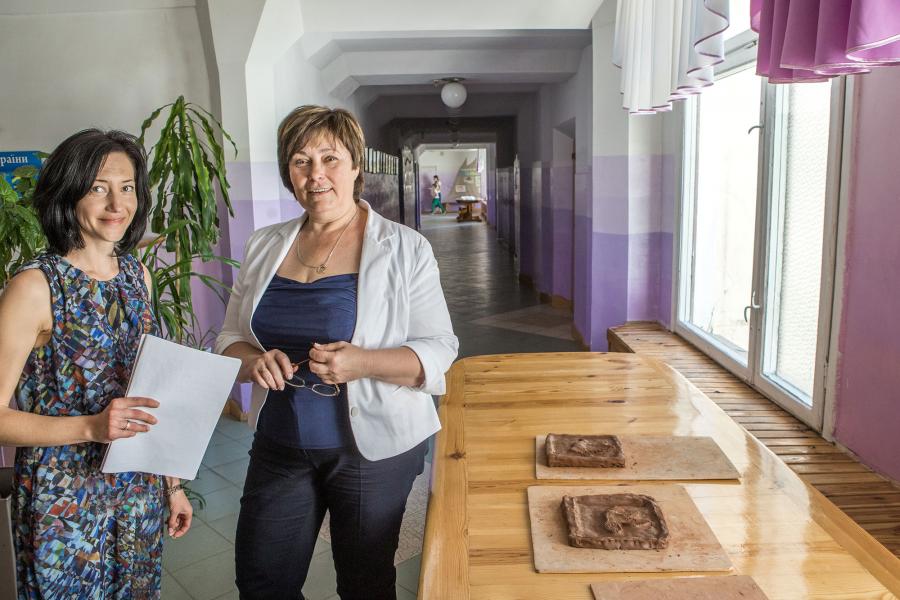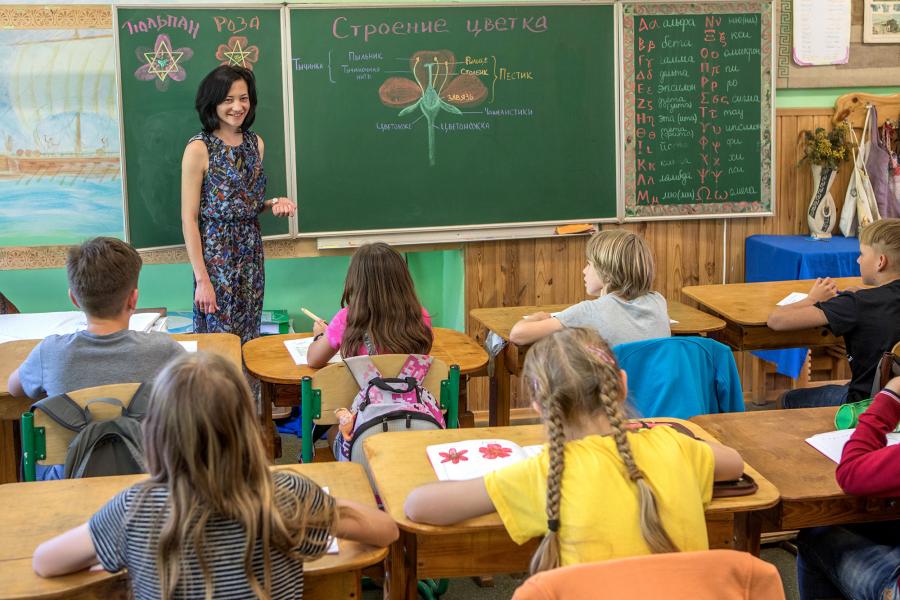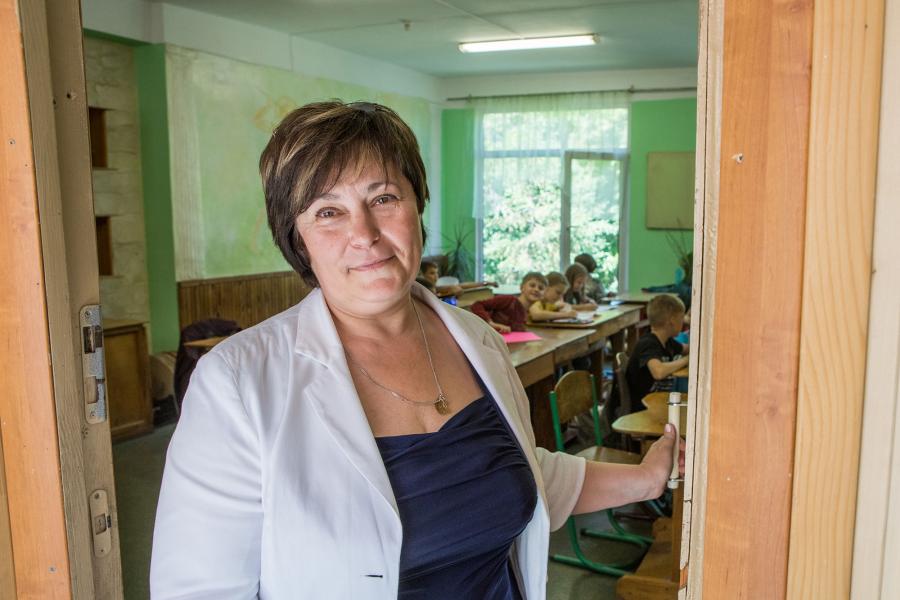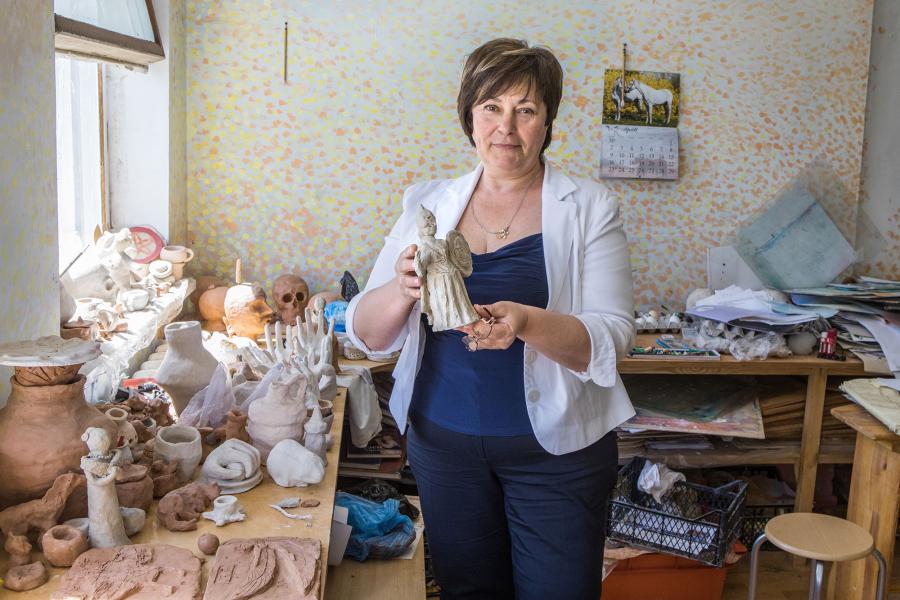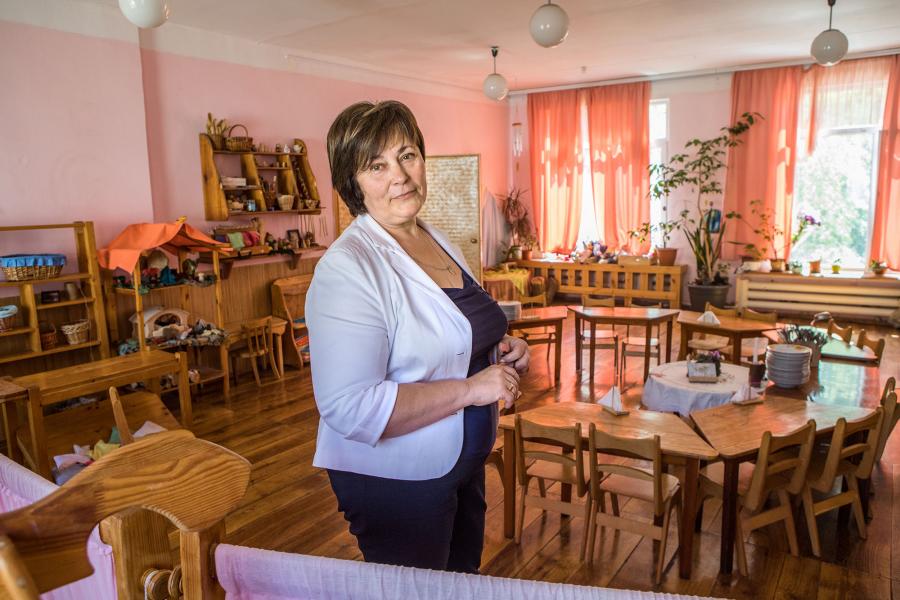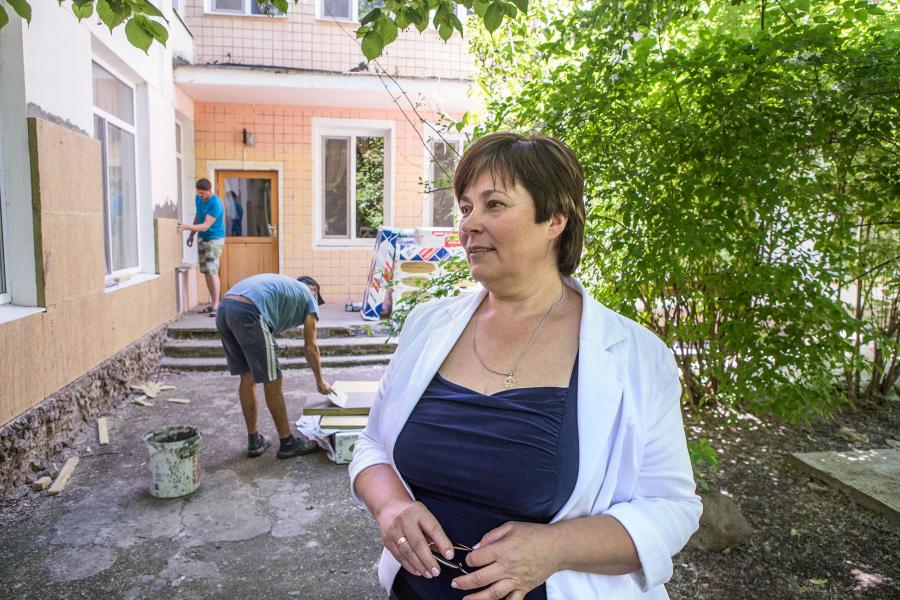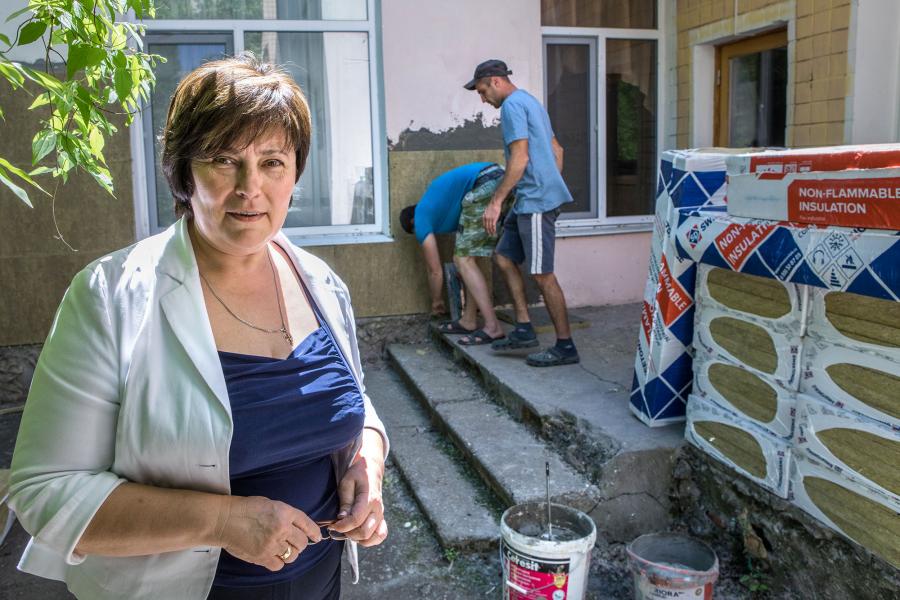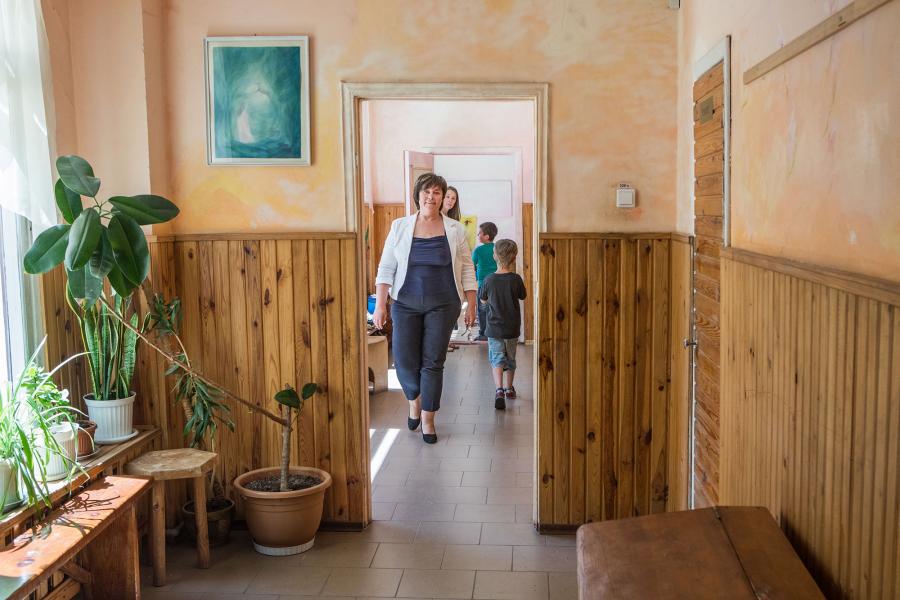The ‘Stupeni’ (‘steps’) school in Odessa has received a grant from the EU to conduct an energy inspection, after the private Waldorf school applied to the EBRD’s Advice for Small Businesses programme. After modernising the heating system, the classrooms will be much warmer in winter, and the maintenance of the building will cost half a million hryvnyas less a year.
Teenagers perched in the branches of large green trees are the first thing you see when you walk into the yard of the ‘Stupeni’ school in Odessa. “It’s no big deal, children should get to know the world,” says Natalya Lukyanchenko, director and founder of the school, dismissing the baffled question on whether they are in breach of discipline.
This is unusual for a school in Ukraine, where the discipline is usually strict. But ‘Stupeni’ is not like everywhere else. The school follows the Waldorf educational system – that is to say an approach to children’s education where personality and healthy development are key. “The school's aim is not to form an individual and send him or her out to life,” explains Natalya Lukyanchenko, “but to prepare them for life, which will then form them on its own.”
Nearly 300 children study at the school and kindergarten, which share the same premises. Forty of these are special needs children suffering from serious disabilities such as cerebral palsy and autism or other conditions. ‘Stupeni’ became almost the first school in Ukraine to introduce inclusive education. “We were seven young teachers; we were also parents and wanted to open a good school – primarily for our own children,” says Lukyanchenko, explaining how the idea of a Waldorf school was born.
‘Stupeni’ began to work at full capacity at the beginning of the 2000s on the premises of an abandoned kindergarten with an area of 2,000 square metres. The school was very cold in winter, and the central heating system did a poor job of warming up the classes and groups, forcing the management to spend extra money on electric heaters.
Last year, the school turned to the EBRD Advice for Small Businesses. It connects small and medium-sized businesses with local consultants and international advisers who work with companies across a range of projects, including energy efficiency. Grants that partially cover the cost of the consulting projects are provided by the European Union as part of its EU4Business Initiative.
As part of the project, a comprehensive energy inspection was carried out at the school, with expertise provided by the EBRD and funded by the EU. As a result of the survey, experts were able to determine the largest sources of heat and energy loss and also developed a programme to modernise the heating. The school will not only to have warm classes in winter, but also save half a million hryvnas a year from its utilities bill.
Lukyanchenko is glad because, in addition to the obvious gaps through which the heat was escaping, the energy inspection revealed points of low energy efficiency invisible to non-specialists. For example, it turned out that the hot-water boiler was consuming electricity even at night when there was no one at school.
‘Stupeni’ has already begun to implement the experts’ recommendations. They have replaced the roof and are now in the process of insulating the external walls.
Lukyanchenko says that the school received the money for the energy inspection from the EBRD very quickly. And now ‘Stupeni’ is going to apply for a new grant to install solar panels. In warm Odessa, where the climate is almost subtropical, this is a very popular method of private electrical production.
************************************
EBRD Advice for Small Businesses
The EBRD Advice for Small Businesses connects SMEs to local consultants and international advisers in a range of sectors, ranging from food and beverages to wholesale and retail distribution and construction and engineering. More than half of the projects are outside the capital Kyiv. Grants that partially cover the cost of the consulting projects are provided by the EU as part of the EU4Business Initiative.
Whether it’s a new website, a quality management system, a marketing strategy or even a completely new governance structure, the EBRD works with businesses to define the best project to fit their needs, then supports them through the whole process of implementation, and returns a year later to measure the impact made.
Author: Katerina Shapoval
The article was prepared for the EU4Business initiative.

